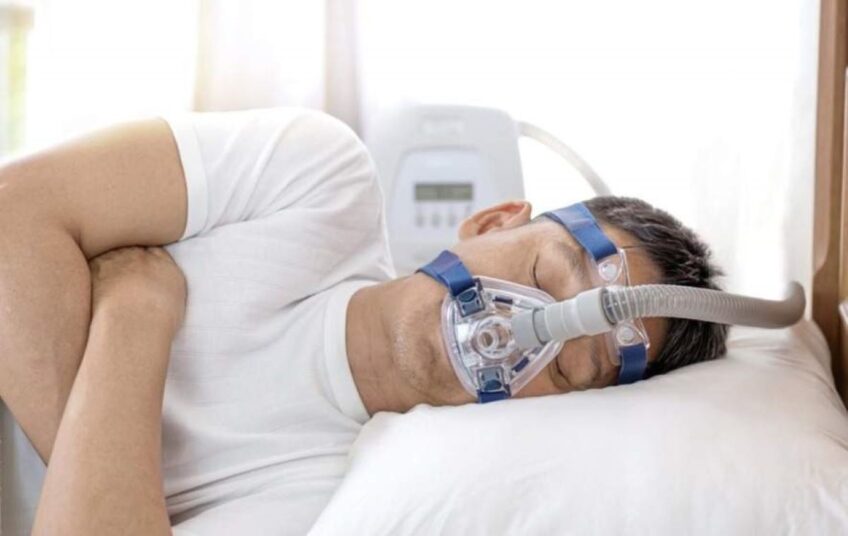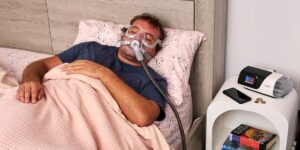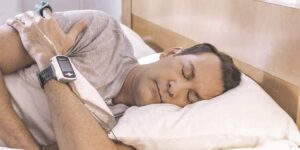What is Sleep Apnea and Why is Early Detection Crucial?
Sleep apnea is a serious sleep disorder where your breathing repeatedly stops and starts throughout the night. The most common form, obstructive sleep apnea (OSA), occurs when throat muscles relax excessively, blocking your airway during sleep. You might experience loud snoring, gasping for air during sleep, or waking up with a dry mouth and morning headaches.
The symptoms extend beyond nighttime disruptions:
- Excessive daytime sleepiness
- Difficulty concentrating during work or daily activities
- Irritability and mood changes
- Frequent awakening during the night
- Witnessed breathing interruptions by your partner
Untreated sleep apnea carries significant health risks that compound over time. Your cardiovascular system bears the brunt of repeated oxygen deprivation, leading to high blood pressure, heart disease, and increased stroke risk. The chronic sleep disruption affects your cognitive function, workplace performance, and driving safety.
Early detection through proper Sleep Apnea Test Brisbane services transforms these health outcomes dramatically. When you identify and treat sleep apnea promptly, you reduce cardiovascular complications by up to 70% and restore quality sleep patterns. Your energy levels improve, concentration sharpens, and the risk of workplace accidents decreases significantly.
The difference between early intervention and delayed treatment often determines whether you’ll face serious health complications or maintain optimal well-being through effective management strategies.
How is Sleep Apnea Diagnosed in Brisbane?
Sleep apnea diagnosis Brisbane relies primarily on comprehensive sleep studies that monitor your breathing patterns, brain activity, and vital signs throughout the night. The gold standard diagnostic method is polysomnography Brisbane, an overnight sleep study that provides detailed insights into your sleep architecture and respiratory events.
Primary Diagnostic Method: Overnight Sleep Study
Polysomnography captures multiple physiological parameters simultaneously, including:
- Brain waves to determine sleep stages
- Eye movements and muscle activity
- Airflow through your nose and mouth
- Chest and abdominal effort during breathing
- Blood oxygen levels throughout the night
- Heart rhythm and rate variations
Testing Options Available in Brisbane
You have two distinct pathways for sleep apnea testing:
1. In-Clinic Studies
- Conducted in specialised sleep laboratories
- Comprehensive monitoring with trained technicians present
- Suitable for complex cases requiring detailed observation
2. Home-Based Testing
- Portable monitoring devices used in your own bedroom
- More convenient and cost-effective option
- Ideal for straightforward obstructive sleep apnea diagnosis
GP Referral Process
Your journey begins with consulting your General Practitioner, who will assess your symptoms and medical history. Your GP can refer you directly to accredited sleep study providers like Air Liquide Healthcare, which offers both testing options across Brisbane. The referral process ensures Medicare coverage eligibility and connects you with appropriate diagnostic services based on your specific needs and circumstances.
What Happens During a Home-Based Sleep Apnea Test?
Home sleep study Brisbane services provide a comprehensive yet comfortable testing experience in your own bedroom. The process begins when you receive a portable monitoring device from your healthcare provider, typically collected the day before your scheduled test. This ambulatory sleep monitoring equipment comes with clear instructions and all necessary sensors for overnight data collection.
Getting Ready for the Test
Before your home sleep apnea test, you’ll need to prepare by following these steps:
- Schedule the test: Contact your healthcare provider to schedule a home sleep apnea test.
- Pick up the device: On the day before the test, visit your healthcare provider’s office to collect the portable monitoring device.
- Read the instructions: Familiarise yourself with the device by carefully reading the provided instructions.
- Set up the sensors: Follow the instructions to attach the lightweight sensors to your body as shown.
- Maintain your routine: Stick to your regular bedtime routine and try to sleep naturally while wearing the sensors.
How Does It Work?
The testing procedure involves attaching several lightweight sensors before bedtime:
- Nasal cannula – monitors airflow patterns and breathing interruptions
- Chest and abdominal belts – track respiratory effort and movement
- Pulse oximeter – measures oxygen saturation levels throughout the night
- Position sensor – records sleep positions and body movements
You maintain your regular bedtime routine whilst wearing these sensors, allowing for natural sleep patterns. The non-invasive recording technology captures essential physiological parameters without disrupting your comfort or requiring hospitalisation.
Why Choose Home Testing?
Key advantages of home-based testing include:
- Sleeping in familiar surroundings reduces anxiety
- No travel requirements or overnight clinic stays
- Cost-effective compared to laboratory studies
- Maintains normal work and family schedules
The monitoring device records continuous data streams including heart rate, brain wave activity, and breathing patterns. This comprehensive physiological data provides sleep specialists with detailed insights into your sleep architecture and potential apnea events, enabling accurate diagnosis from the comfort of your own home.
Who Should Consider Undergoing a Sleep Apnea Test in Brisbane?
Knowing when to get tested for sleep apnea can be the key to getting back to good sleep after years of struggling. You should think about getting tested if you often snore loudly, waking up your partner or yourself during the night.
Symptoms that Require Immediate Attention
If you experience any of the following symptoms, it’s important to seek help right away:
- Someone has seen you stop breathing while you sleep
- You feel extremely tired during the day even though you sleep enough at night
- You wake up with headaches that go away as the day goes on
- You have trouble focusing or remembering things
- You frequently wake up at night to urinate
- You wake up with a dry mouth or sore throat
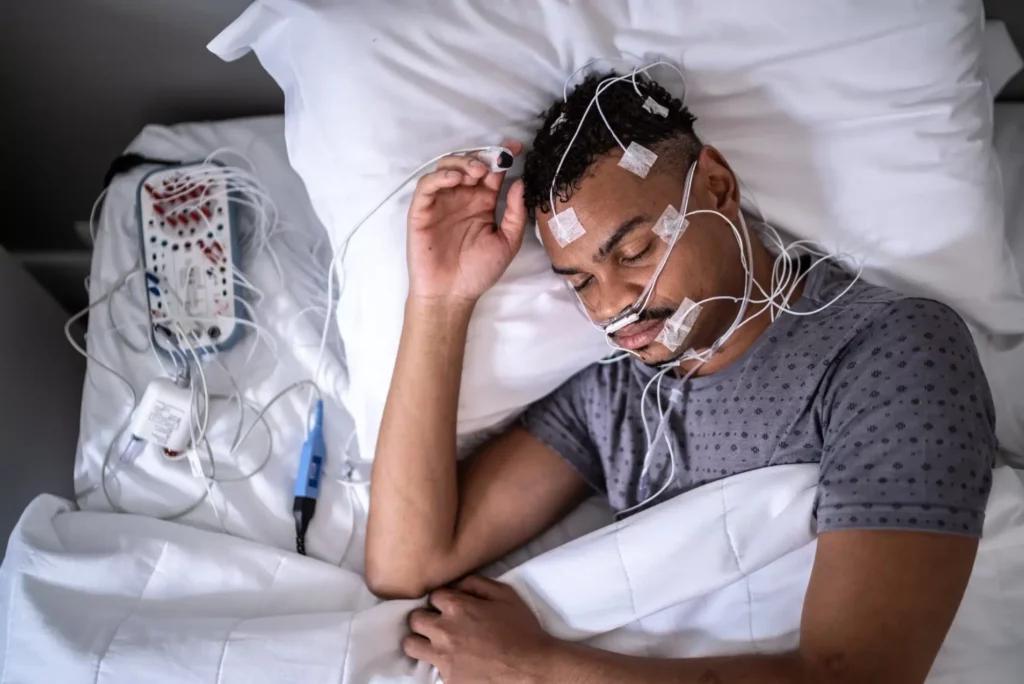
Risk Factors for Developing Sleep Apnea
Certain factors can increase your chances of having sleep apnea. These include being overweight, having a thick neck, or having specific physical traits like a narrow airway or enlarged tonsils. Men over 40 and women who have gone through menopause are also more likely to be affected.
Workers in jobs where safety is crucial—such as commercial drivers, pilots, and heavy machinery operators—often need to get screened for sleep apnea before starting work. Employers in Brisbane are increasingly requiring these tests to ensure safety at work and follow regulations.
Your GP is the best person to talk to when you notice these warning signs. They can look at your symptoms, assess your risk factors, and refer you to the right testing services in Brisbane’s healthcare system.
What Are the Available Sleep Apnea Testing Services and Support Systems in Brisbane?
Brisbane offers comprehensive sleep apnea testing services through established healthcare providers who specialise in sleep disorder management. Air Liquide Healthcare Brisbane stands out as Australia’s largest facilitator of home sleep apnea studies, delivering complete patient pathways from initial diagnosis through ongoing treatment management.
The company’s integrated approach connects patients with validated sleep physicians whilst maintaining partnerships with leading CPAP equipment manufacturers. Their extensive network includes recognised sleep brands such as:
- SNORE Australia
- Healthy Sleep Solutions
- Mycroft
- Complete Care
- Sleep Disorder Australia (SDCA)
This comprehensive coverage ensures patients access specialised care regardless of their location within Brisbane’s metropolitan area.
CPAP therapy initiation Brisbane services include structured titration programmes designed to optimise treatment effectiveness. Patients receive dedicated therapy guidance, regular monitoring, and ongoing support to maintain long-term compliance with prescribed treatments.
Medicare coverage for sleep studies applies to diagnostic tests meeting MBS guidelines, making essential testing accessible through bulk billing arrangements. Private health insurers frequently cover CPAP therapy costs under specific policy packages, though coverage varies between providers and individual circumstances.
The integration between diagnostic services and treatment providers creates seamless care transitions. You receive coordinated support from initial testing through equipment setup, therapy adjustment, and regular follow-up appointments with healthcare professionals who understand your specific sleep apnea management needs.
How Does Early Detection Through Testing Improve Sleep Health Outcomes?
The benefits of early detection sleep apnea extend far beyond simply identifying the condition. When you receive a timely diagnosis, your healthcare provider can develop a targeted treatment plan that addresses your specific sleep patterns and severity levels. This personalised approach significantly increases the likelihood of successful intervention before complications develop.
Improved treatment adherence becomes achievable when patients understand their condition early in its progression. You’re more likely to embrace CPAP therapy or other treatments when you can directly connect your symptoms to the diagnosed condition. Early detection allows for gradual adaptation to treatment protocols, making the adjustment period more manageable.
Regular check-ups and therapy guidance play a crucial role in maintaining long-term compliance. Air Liquide Healthcare’s comprehensive support system ensures you receive ongoing monitoring and adjustments to your treatment plan. This continuous care approach helps prevent treatment abandonment, which affects up to 50% of sleep apnea patients without proper support.
The positive impact on your daily life becomes evident within weeks of starting treatment. You’ll experience:
- Reduced daytime fatigue – allowing you to remain alert during work and social activities
- Enhanced cognitive function – improving memory, concentration, and decision-making abilities
- Better cardiovascular health – reducing strain on your heart and blood vessels
These improvements contribute to enhanced quality of life, enabling you to participate fully in activities you may have avoided due to excessive tiredness or health concerns.
What Treatment Options Follow After a Positive Sleep Apnea Diagnosis?
CPAP therapy Brisbane is the most widely used and effective treatment for obstructive sleep apnea. Comprehensive programmes are offered by providers such as Air Liquide Healthcare, which includes their network of sleep brands like SNORE Australia and Healthy Sleep Solutions.
The CPAP therapy initiation and titration process
The CPAP therapy initiation and titration process begins immediately after your diagnosis. During this process, specialists will adjust the air pressure settings on your CPAP machine based on the specific results of your sleep study and the breathing patterns recorded during the test.
Why treatment personalisation is important
Treatment personalisation is crucial for effective management of sleep apnea. Your sleep physician will review the data from your home-based test to determine:
- Optimal CPAP pressure settings for your airway needs
- Selection of mask type and size based on your facial structure and sleeping position
- Additional features such as heated humidification or ramp settings for added comfort
How ongoing monitoring helps ensure treatment effectiveness
To ensure that your treatment is effective, ongoing monitoring protocols are in place. This includes regular check-ups with your GP and reviews with specialists. In Brisbane, we have an integrated healthcare approach which means that all members of your treatment team can communicate easily with each other. This includes sleep physicians, respiratory therapists, and your primary care provider.
Other treatment options available for obstructive sleep apnea
In addition to standard CPAP therapy, there are other obstructive sleep apnea treatment options available. These include BiPAP devices for more complex cases and oral appliances for mild conditions. Your treatment plan will be adjusted based on how well you comply with the therapy, any improvement in symptoms, and any side effects you may experience during the first few weeks of treatment.
See Also : Perth Sleep Study Cost: Types, Factors, Insurance & Affordable Options
Importance of regular equipment maintenance and therapy adjustments
To ensure long-term success of your treatment, it is important to regularly maintain your equipment, replace masks as per schedule, and make any necessary adjustments to the therapy.
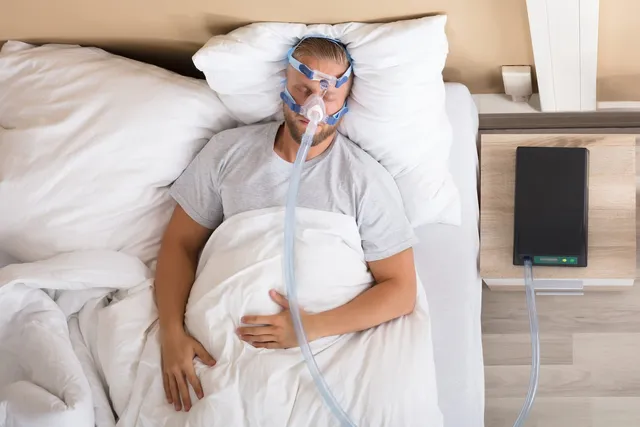
How Can Patients Prepare for a Sleep Apnea Test at Home?
Preparing for home sleep study Brisbane requires minimal disruption to your normal routine. You should maintain your usual bedtime habits, including your regular sleep schedule and evening activities. Avoid alcohol and caffeine in the hours before the test, as these substances can interfere with natural sleep patterns and affect the accuracy of your results.
Sensor Placement and Setup
Your healthcare provider will provide detailed instructions for attaching the monitoring sensors. The typical home sleep study equipment includes:
- Nasal cannula – positioned under your nostrils to measure airflow
- Chest and abdominal belts – wrapped around your torso to monitor breathing effort
- Pulse oximeter – clipped to your finger to track oxygen levels
- Position sensor – attached to monitor your sleeping position
Ensuring Accurate Data Collection
Follow these patient guidelines sleep test recommendations for optimal results:
- Sleep in your usual bed and bedroom environment
- Wear comfortable, loose-fitting pyjamas that won’t interfere with sensors
- Keep the monitoring device within arm’s reach throughout the night
- Avoid removing sensors during sleep, even if they feel slightly uncomfortable
- Record any unusual events or sleep disruptions in the provided diary
The beauty of home-based testing lies in capturing your natural sleep behaviour in familiar surroundings. This approach typically produces more representative data compared to clinic-based studies, helping your healthcare provider develop the most effective treatment plan for your specific needs.
